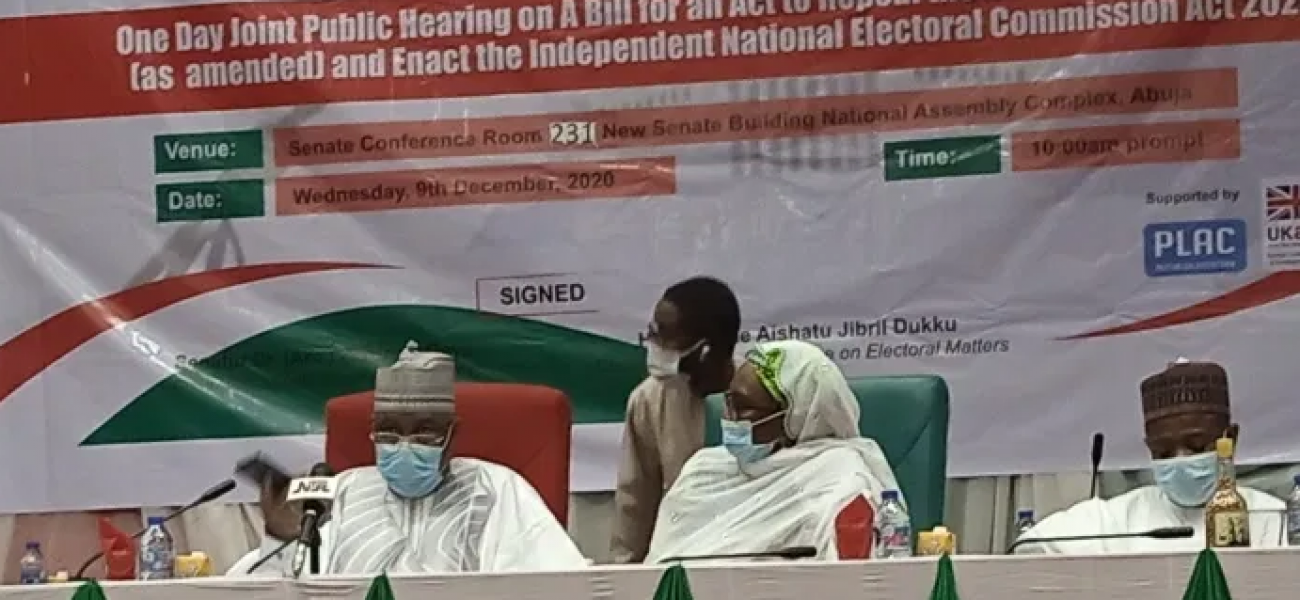A joint public hearing by the Senate and House Committees on INEC and Electoral Matters on the Electoral Act (Repeal and Re-enactment) Bill held on Wednesday, December 9. Policy and Legal Advocacy Centre (PLAC) and the United Kingdom Foreign, Commonwealth and Development Office (FCDO) jointly supported the public hearing. Stakeholders from across the electoral spectrum, including legislators, the electoral commission, security agencies, ministries and departments of governments and civil society attended the public hearing. Stakeholders made submissions and proposals to the repeal and re-enactment bill.
The bill had scaled second reading at the House of Representatives on Tuesday, November 24. If passed into law, it is expected to lay the foundation for significant development in Nigeria’s electoral system. At the hearing, the President of the Senate, Senator Ahmad Lawan expressed the determination and commitment of the National Assembly to pass the bill before the end of the first quarter of 2021. He added that it is important for the provisions of the proposed law to be clear in order to avoid ambiguity, and also provide the required support for securing the electoral process through the use of technology. Commenting on the proposed legislation, former Deputy President of the Senate, Senator Ike Ekweremadu pointed out that conducting political party primaries early will provide the electoral umpire with sufficient time to prepare for elections, as well as give parties and courts adequate time to deal with pre-election matters. He noted this, while making reference to the recent Imo North Senatorial bye-election, which was conducted amidst confusion about the name of the exact candidate representing one of the two major political parties running in the elections.
The bill is proposed to repeal the Electoral Act, 2010, which has passed through a number of amendments, and provide a more stable and progressive legal framework for elections in Nigeria. It proposes to alter several provisions relating to establishment of polling units; issue of ballot paper; limitation of election expenses; conduct and postponement of elections in an emergency; oath of neutrality by election officers, among other provisions. The positive aspect of repealing and re-enacting an electoral law for the country would be that all of the multiplicity of alterations to the Electoral Act, numbering four, would be brought under one document for ease of reference and eliminating confusion.

